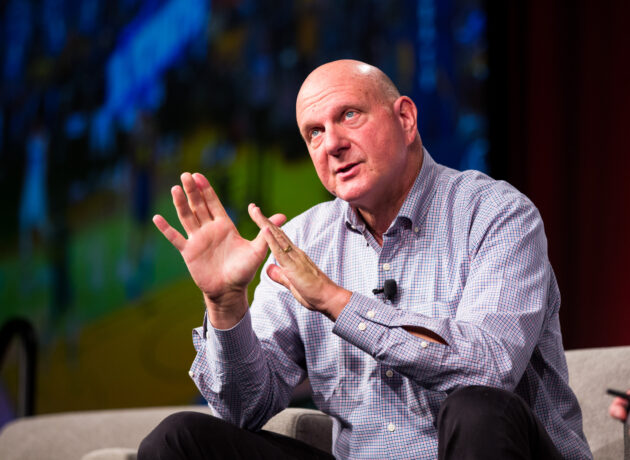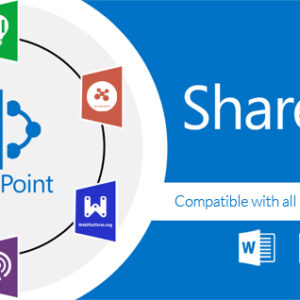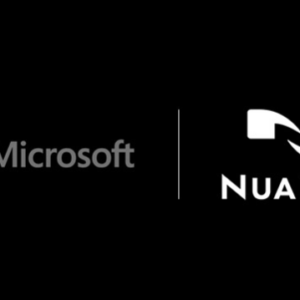
It’s 2022, and Microsoft’s cloud business is on track to become half of its overall revenue. Big investments in Xbox and video games, over two decades, have positioned Microsoft to make an even bigger bet on the metaverse, as evidenced by its deal to acquire Activision Blizzard for $68.7 billion, the biggest in its history.
Eight years after he stepped down as Microsoft CEO, is it time to reassess Steve Ballmer’s legacy? I put that question to Ballmer himself during a recent recording of the GeekWire Podcast.
To be clear, this was not the main subject of our discussion, which focused mostly on Ballmer’s non-profit USAFacts civic data initiative. And the first thing Ballmer said was that he didn’t think looking back was all that helpful, either way.
But as we were talking about the importance of long-term R&D and invention for the U.S. economy, it seemed to me worth revisiting the topic of Microsoft’s investments during his tenure, given everything that has unfolded in the meantime.
Of course, Ballmer is not unbiased on the topic of his own legacy. The issue is further complicated by his ongoing status as the company’s largest individual shareholder. He remains a Microsoft loyalist, partial to Teams calls and Surface computers, and quick to praise his successor Satya Nadella’s work as Microsoft CEO.
But true-to-form, he offered a candid assessment of the situation, including his own missteps. Listen above, starting at 18:47, and continue reading for highlights, edited for clarity and length.
Q: You got a hard time from pundits when you left, as people looked at the share price. … Is it time for tech historians to go back and revise their outlook on your legacy as Microsoft CEO, when you look at what Microsoft is doing now in the cloud in the metaverse?
Ballmer: Historians are historians. I don’t know about looking back as being all that helpful, either way. Me, I feel good. And that’s all it matters to me. So what matters to other people is what matters to other people.
I feel great, leaving Microsoft in a strong financial position with fantastic people, with a cloud business, which has now developed nicely. So many people missed the cloud. IBM missed it; Oracle missed it; Veritas missed it. So many people missed the transition to the cloud. We could have done it better. But I feel good about leaving that in place, whether it’s the Office business or the Azure business.
I also think Satya has done a fantastic job, taking the company to the next level.
Are there things I wish we had done differently? Of course, there are things I wish we had done differently. Are there things that undoubtedly Satya looks at and says, I wish I’d done them differently? Of course, ther are going to be such things. So, you know, it’s the way of the world. Nobody will ever bat a thousand. And I feel very good. And if somebody wrote something nice, that’s nice. It’s not gonna make me feel any better. I feel really good.
Q: People listening to this will be asking (about me), ‘Why isn’t that guy bringing up Nokia and aQuantive?’
Ballmer: Yeah, aQuantive was a bad acquisition, and I made it. OK. Skype was a good acquisition. But somehow the company didn’t sustain. I feel good about the acquisition. And I don’t know why Zoom has the position Zoom has. Skype should have inherited that position. I don’t feel like that’s not my watch. That was a very good acquisition.
Nokia is sort of in-between. I made the acquisition at the request of our board, because I had already decided I was going to transition. And the company didn’t choose to do anything with it. And that may have been the right call. I’m not going to provide doubt, but it was the call for the next (CEO). Now, the board probably should have managed that transition better. You know, that’s a whole different story.
But there’s some I blew. For sure. There are some I think, you know, next generation could have done better and there’s some that, who knows?
They’ve made a number of good acquisitions. When they bought LinkedIn, I thought they spent too much and boy, do I look stupid on that. I tell Satya, yes, I’m in awe, that was a fantastic acquisition. They haven’t made any complete duds. In fact, I know of no duds that they have made. That doesn’t mean they haven’t made some, because there’s plenty of acquisitions I don’t focus in on. Somebody was telling me yesterday about an acquisition they made for $400 million or $500 million. I didn’t even know about it. And I do pay a little bit of attention to the company.
So it’s a whole different world. Right now, I think they’re doing a great job with that. I think the Activision acquisition is a great idea. We had looked at it a number of times, and they’ve they finally got it at a good price, in my opinion. I know they still have to go right through regulatory approval, but LinkedIn as a large acquisition was a good deal. This one should be a good deal. So I think they’re doing a great job on that.
The question of Ballmer’s legacy also came up in our discussion in November with Robbie Bach, who led Microsoft’s games business as chief Xbox officer and president of the Entertainment & Devices Division under Ballmer.
“Steve was not afraid of big bets. Xbox doesn’t exist without Steve. No question,” Bach said. “I worked for Steve for seven years, and they were the seven best professional years of my career, and I learned a lot from him. And I think he’s underappreciated as a CEO in terms of the groundwork that he laid for the company.”
However, Bach added, “The thing that didn’t get done during his tenure was a rethinking of Microsoft culture. That’s the first thing Satya did. And Satya had this wonderful good fortune of being able to take advantage of Steve’s strategic groundwork, and an opportunity to really address the cultural changes that needed to be made, and he made some good choices in doing that.”
Listen to the full interview with Bach here, and read more from the larger Ballmer discussion here.





